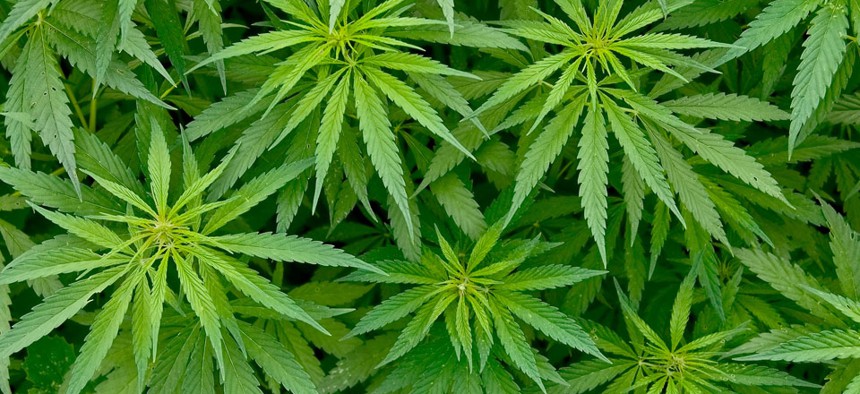
Opra/Shutterstock.com
You Can Smoke Pot in Colorado Unless You’re a Federal Employee
Federal government allows marijuana use in states where it’s legal, but its employees who live there can’t light up.
This story has been updated with additional comment from the Justice Department.
In 1996, California became the first state to legalize marijuana for medical purposes.
Ever since, the federal government has walked a fine line with states that eased restrictions on what it has classified as a Schedule I drug since 1970. Today, 20 states and Washington, D.C. allow the use of medical marijuana.
In January 2014, Colorado became the first state to allow the distribution and consumption of marijuana for recreational use, and Washington state soon will become the second. The Obama administration, through the Justice Department, has essentially agreed to turn a blind eye in those states, so long as they prevent certain things like distribution to minors, spillage into states where use of the drug is still illegal, and profiting off sales by criminal enterprises.
The federal government, however, has remained staunchly against allowing its own workforce from sparking up some Mary Jane.
President Ronald Reagan codified the prohibition of federal employees using marijuana in a 1986 executive order, known as the “Drug-free federal workforce.”
According to the order, “federal employees who use illegal drugs, on or off duty, tend to be less productive, less reliable and prone to greater absenteeism than their fellow employees who do not use illegal drugs.”
That logic is as true today as it was then -- even for the nearly 100,000 federal employees in Colorado and Washington state -- said a Justice Department spokesperson.
“Marijuana is illegal under federal law and the rules prohibiting federal employees from using it still apply, regardless of state laws,” the spokesperson told Government Executive. Justice previously has made clear that feds cannot take a toke while on the job; in an August 2013 memo announcing it would not get in the way of sales in states that had legalized recreational marijuana, the department said “preventing marijuana possession or use on federal property” was one of eight priorities it would still enforce.
As long as feds are not smoking at their desks though, it’s not likely their agency would actually prevent them from using marijuana. Each agency director can determine the extent of drug testing “based on the nature of the agency’s mission and its employees’ duties.” If an agency changes its drug testing policy, it must provide employees with 60 days’ notice. Failing a drug test can lead to discipline “up to dismissal,” according to the latest regulations from the Health and Human Services Department, though offering rehabilitation or counseling is more likely.
Reagan’s order carved out an opportunity for employees to submit “medical documentation that may support a legitimate use for a specific drug,” but the Justice spokesperson said this would not apply to marijuana.
Feds are "prohibited from consuming marijuana for any purpose, regardless of whether they were able to obtain a prescription under state law," the spokesperson said.
Several other agencies, including HHS and the Office of Personnel Management, also declined to comment.
(Image via Opra/Shutterstock.com)







